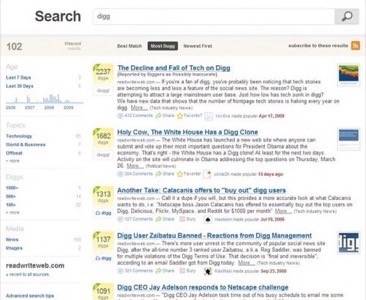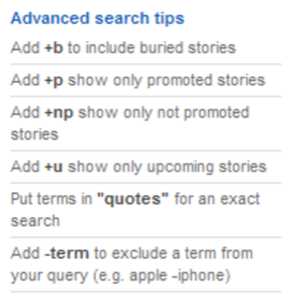For discovering new content and participating in an active community, Digg is awesome. But, everyone who has used the service for a while knows that Digg search has been mediocre at best, returning different results from one day to the next. All that has changed today with the just-announced Digg Search overhaul. Designed by (in Kevin’s words) pretty bad ass engineers, the new search takes in to account a lot of under-the-hood Digg mechanics when selecting what results to show you, while simultaneously improving the user interface and usability.

There are numerous improvements in all areas of Digg Search. The biggest improvement, hinted at by Digg’s own post title, is that it no longer sucks. Search results will be more reliable. General terms will give you more relevant content, and more targeted searches (using quotes around an exact match and a minus sign in front of a word you want to exlude) are now supported. Search results can be further refined by choosing to weight by Digg count, age, categorical topic and more. New shortcuts are supported, for example +u will only return stories marked ‘upcoming.’ Additionally, searches on particular domains (we suggest this search, illustrated below) gives most priority to stories from that domain.

With these changes, the strength of using the available search result-generated RSS feeds has also improved. Now, you have greater flexibility to get just the items you are interested in from in a search result, and consequently, in your feed reader. If you are an information junkie like we are, you know that leveraging some time getting the perfect search result locked in to an RSS feed is huge, and it can make the difference between continuously sifting through noise and every story being one that is important to you.

Frankly, we think Digg’s work on search is simply tremendous. Although it does not rely on search to remain immensely popular, its now leverages that popularity to return results that are relevant and useful sliced any number of different ways. A great job on a core part of Digg’s infrastructure that has been overlooked for too long.










